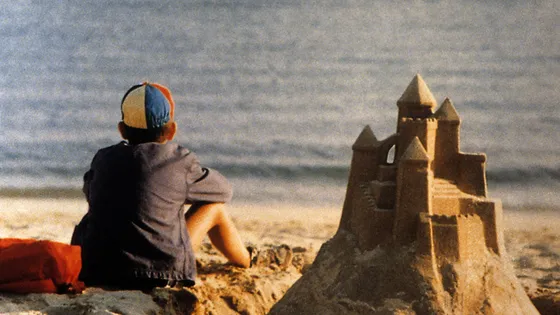In the latest editions of the Cannes Film Festival, a fairly high number of first features have been selected for the competition. This year is no exception, with Agathe Riedinger’s Wild Diamond (Diamant brut) being one of the Palme d’Or contenders. This fact inspired me to list the ten best debut films ever made. A fair amount of them premiered at the Cannes Fest in different sections. There will be a certain age range between the different debutants, but at any age, there is no time like the first time. Without further ado, let’s dive into the list.
10. Paris nous appartient
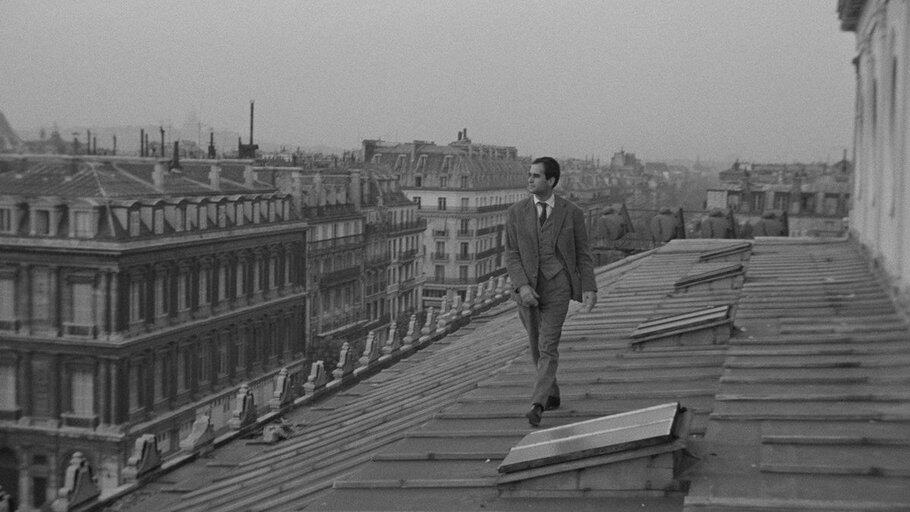
Jacques Rivette’s films are on the superficial level, known for their duration, where the most (in)famous is Out 1, which clocked in at 760 minutes. By comparison, his debut feature is a brief affair with a running time of 141 minutes. Several of Rivette’s themes are already present in the first film, including conspiracies that may be real or figments of young people’s warped minds. The latter renders the film remarkably modern, alas. A group of students and other friends are haunted by strange occurrences, even involving deaths among them.
One of the most striking aspects of the film is its depiction of Paris, which is somehow naturalistic but where the unreal might erupt from under its surface at any time. In that regard, Rivette’s film pays homage to Louis Feuillade. Paris nous appartient is an excellent introduction to one of the most enticing oeuvres in cinema. A restored version of Rivette’s third film, L’amour fou, was screened at the 2023 Cannes Festival.
9. En Kärlekshistoria
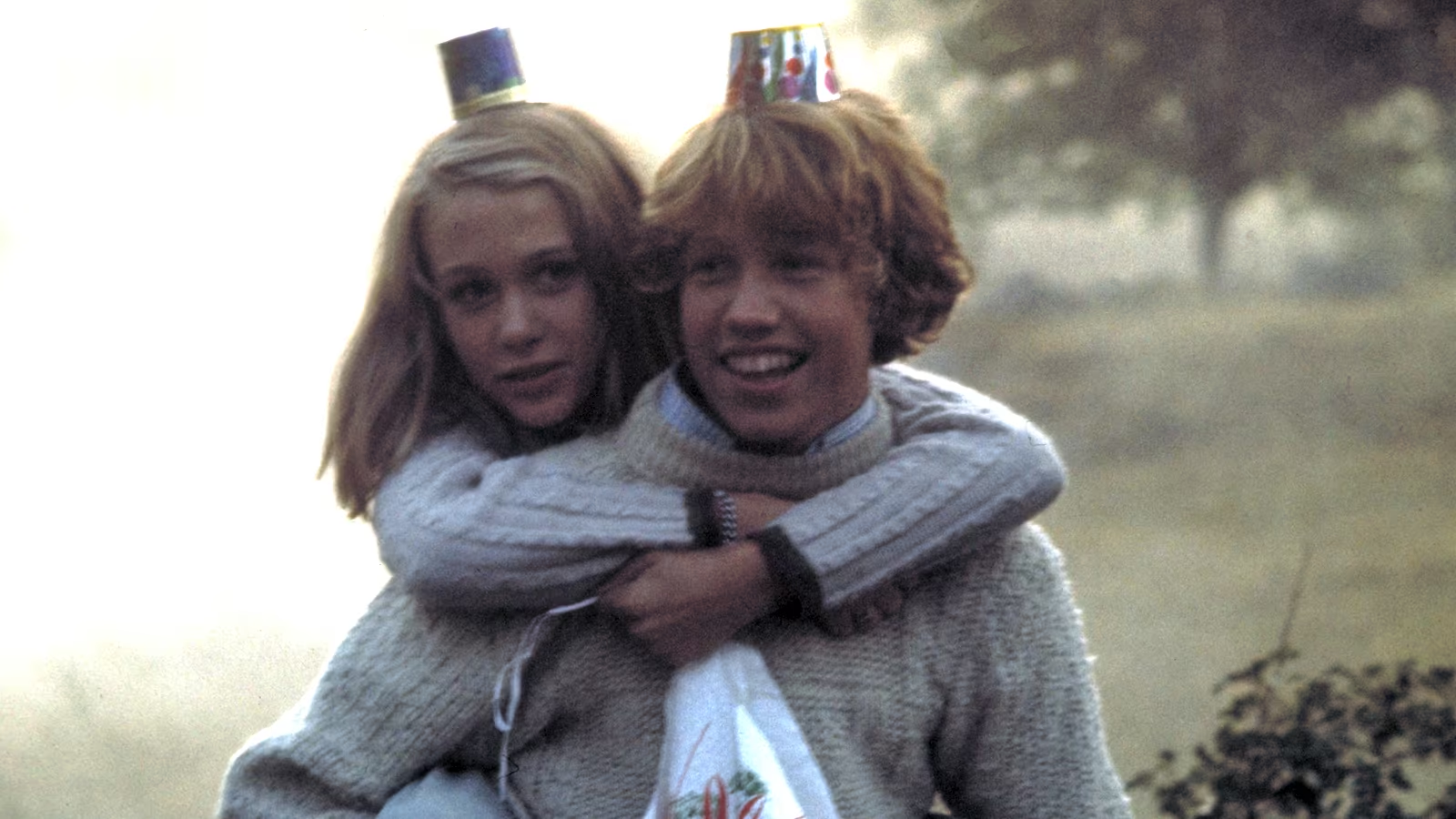
Roy Andersson was 27 years old when his debut, A Swedish Love Story, was released. The story about the young couple Pär and Annika and their parents became an immediate critical and commercial success. It is easy to understand why. It’s a beautiful film about young love (the ads dubbed them the youngest love couple in the world), but at the same time, it is an incisive look at the older generation somewhat lost during the rapid changes that Sweden was going through at the time. Jörgen Persson’s cinematography and Björn Isfält’s score (including the overture before the film begins) were also instrumental to the film’s success.
It is a film that remains remarkably fresh today, and even though the director has radically changed his style since then, it still ranks among his best works. Andersson himself said a few years ago that it remains his best film, with qualities that his later films lack. Even if my own personal favourite remains Giliap (1975), it is easy to understand what he means.
8. Boy Meets Girl
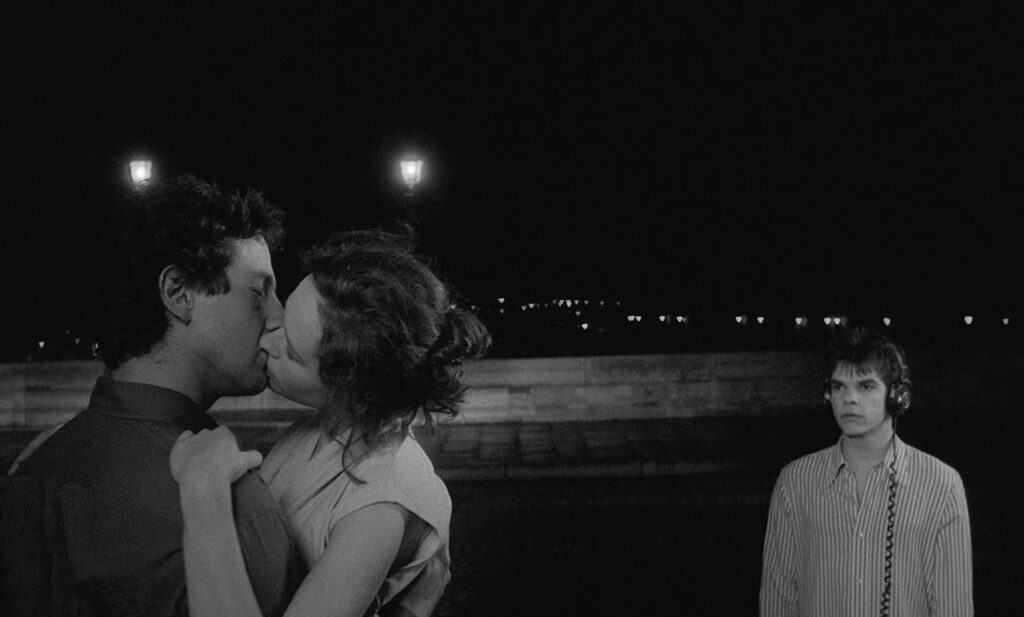
Léos Carax had yet to turn 24 when his debut Boys Meet Girl opened in Semaine de la Critique at Cannes in 1984. Still, the film was immediately regarded as something special. It was the beginning of the collaboration between the director and Denis Lavant. The story about his character wandering around Paris, awaiting his entry into military service, is not the most important thing here. It’s rather about intense emotional moments caught in Jean-Yves Escoffier’s luminous images. There is a strong romanticism at play that was far from typical during the era. Even though Carax would take huge steps forward with later films, embryos of his obsessions are already visible, and he quotes Tom Lehrer, just like in Annette.
7. Sweetie
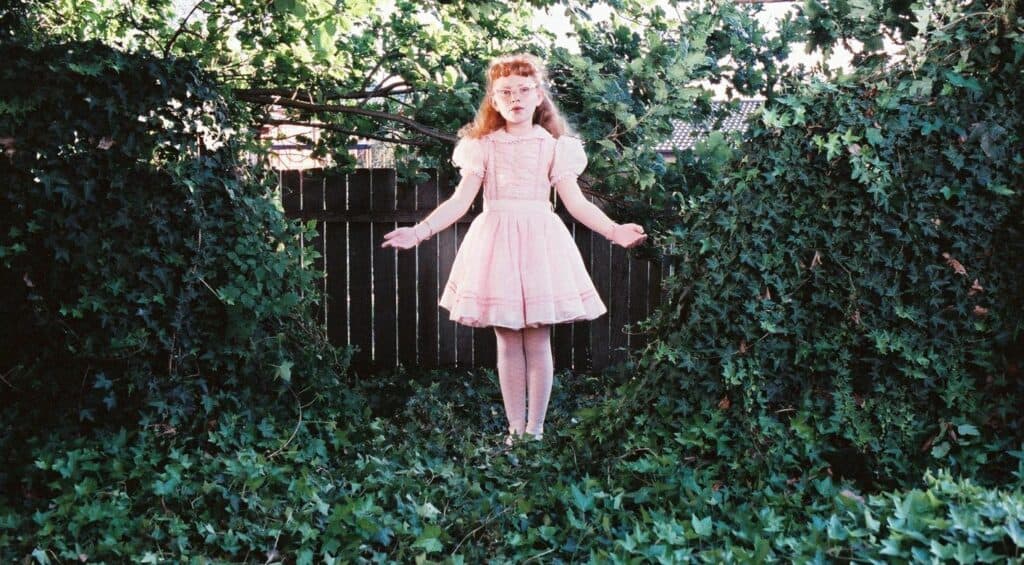
At the Gothenburg Film Festival in 1989, there was a presentation of three shorts and one mid-length TV feature by Jane Campion. I liked all four of them and was eager to see her debut feature, Sweetie, which opened at Cannes the same year. I had to wait for the following Gothenburg, and my expectations were sky-high. They were not only met but exceeded. The story about Kay and her problematic sister Dawn (the titular Sweetie) managed to take a sensitive subject and run with it in weird directions while still keeping the project under tight control. It is a film I have returned to numerous times. The reviews were mixed, and some were downright disgusted by the film.
Everything Campion has done since then has been disappointing to me (with the possible exception of The Power of the Dog), but it sure made her more successful than her first offering. Sweetie is highly recommended for anyone interested in adventurous cinema where the rough edges still remain.
6. Le silence de la mer

Jean-Pierre Melville presented his first feature in 1949. It has more than once been compared to Bresson, which is a notion that Melville rejected or at least had a twist on.”It’s been said that my films are Bressonian, but it is his films that became Melvillian after Le silence de la mer.” He also claimed that Bresson didn’t become Bresson until his third film, Journal d’un curé de champagne. The statement might sound overblown, and Melville was hardly known as the most humble artist, but the inspiration from Le silence de la mer has been confirmed by Bresson himself.
The story concerns an older man and his niece who have to give shelter to a German officer during the occupation. The latter turns out to have a deep love for France and its culture. There are several deep-focus shots, which were achieved with composites. Melville studied Citizen Kane several times and came to the conclusion that it was the way that Greg Toland achieved those shots. In any case, Le silence de la mer is a beautiful, singular film and the beginning of a strong career.
Best debut films top 5
5. Saul fia
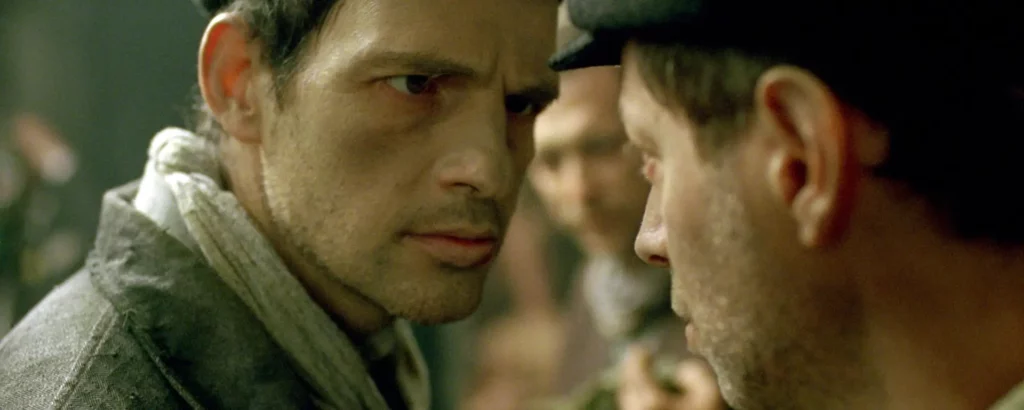
My interest in Hungarian cinema is no secret. Thus, I heard about László Nemes’ first film, Saul fia (Son of Saul), quite early and was told before it opened in Cannes that it was something astonishing. I watched it for the first time at the New Horizons festival a month after its premiere, and it’s no exaggeration to say that you could have heard a needle drop. Even during the Q&A with some Polish actors, people were still visibly shaken by what they had seen. The story is simple: Saul is part of the Sonderkommando and believes that a body found is his son, and he fights to give him a proper burial.
Matyás Erdély’s camera constantly focuses on Saul, never going beyond his vision or hearing. It is a risky gambit, but it pays off perfectly. Shoah director Claude Lanzmann praised the film for its reality and modesty. The latter is also true about the music, which is discreet enough to hardly be audible. That’s only one of the huge contrasts with last year’s vastly inferior The Zone of Interest.
4. Petits arrangements avec les morts
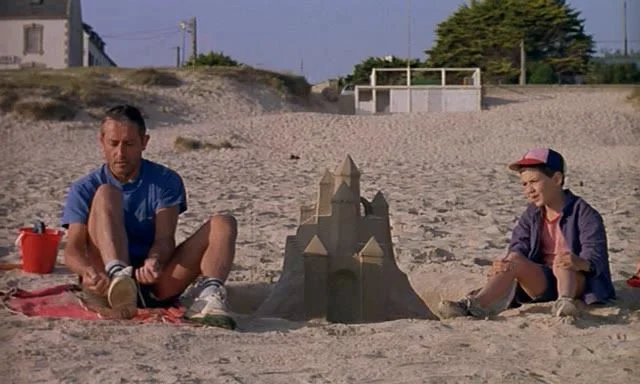
Pascale Ferran’s Petits arrangements avec les morts was presented at Cannes in 1994 and won the Caméra d’Or for best first feature. It is a staggeringly mature debut, highly inspired by Alain Resnais. It still manages to create something new but with similar control of the topic that the master had. The film is a triptych where a man building a castle of sand is observed by three people, two of whom are siblings. The third is 9-year-old Jumbo, who early on informs the spectator that he is “an unstable boy”, only to be refuted by a doctor in the very next scene.
It is not merely the clockwork precision of the script and imagery that makes an impact; it is also a profoundly moving work. Ferran may not be the most prolific director, but all her films are noteworthy, not least the unusual adaptation of Lady Chatterley, released in 2006. Interestingly enough, there is one confusing scene in the first film. When asked about it, she promptly answered that it was an error in the mise en scène and that the colour of a vehicle caused a misunderstanding that could have been avoided. Not all directors are that transparent.
3. De man die zijn haar kort liet knippen
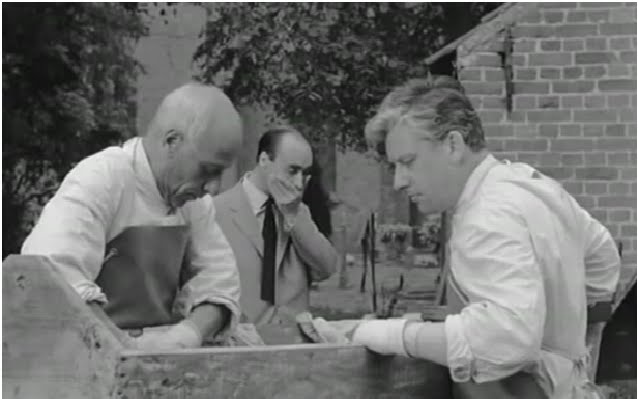
André Delvaux is sadly not as known as he deserves to be. He is arguably the most outstanding Belgian director of all time. It didn’t help that he only completed eight features, all of them good, at least half of them great. Works like Un soir, un train (1968), Rendez-vous à Bray (1971) and Benvenuta (1983) should be sufficient to secure him a place among the great stylists of the seventh art. The Man Who Had His Hair Cut Short is the English title of his enigmatic first film. A schoolteacher is in love with one of his students, which he understands he can not act on.
From that simple premise, the film branches out into the fantastic and oneiric and provides a unique experience. Delvaux was also a pianist, and the music is essential in his films. He often worked with composer Frédéric Devreese to great effect. If there is a director who deserves retrospectives worldwide, it is André Delvaux.
2. Citizen Kane
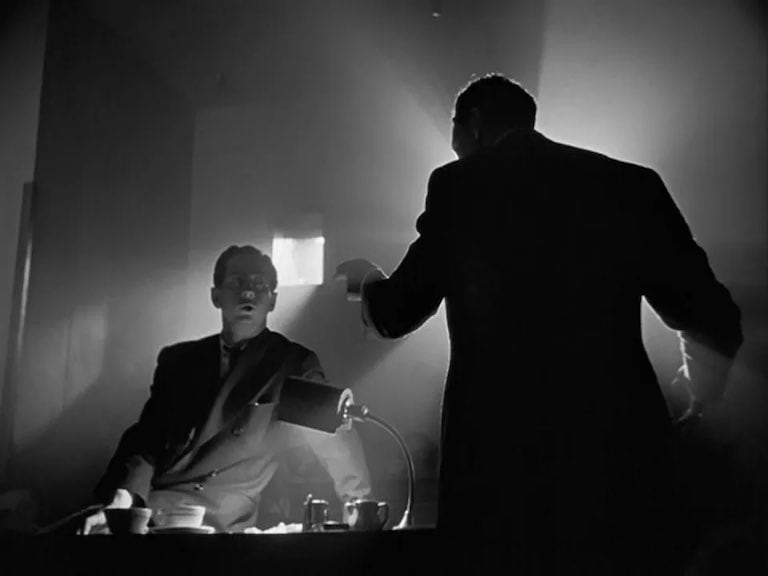
The inclusion of Orson Welles’s first feature shouldn’t surprise anyone—one of the most famous films ever made, not solely from a debutant perspective. When I was studying at the Swedish Film Institute, the cinemas were used for daily screenings for students. When the film I was supposed to watch for studies seemed trite, I walked over to the bigger cinema to rewatch Citizen Kane. I have no idea how many times I’ve seen it in a cinema, but I know it by heart, both the images and the sound. The latter is quite important in the film, and Welles brought his experience from the radio, as did sound recordist James G Stewart.
I still think the film is the masterpiece it has long been claimed to be. It is the only American film on the list unless something unexpected breaks through the wall, but the limit is 10, right?
1.Hiroshima mon amour

Alain Resnais is one of the greatest directors in world cinema, so it is no surprise that he has also made the best debut film, Hiroshima mon amour. Initially conceived as a documentary which didn’t work out, things changed when Marguerite Duras came on board to write the script. I plan to write pieces of all Resnais’ films, so I will leave it here for now. That concludes the list of the ten best debut films in cinema.
Dialing it up to 11
It seems it wasn’t possible to limit the list to 10 films. Rob Reiner’s first film, This is Spinal Tap, was released 40 years ago, and it’s demanding an extra slot, or I will be sent to Hell Hole for life. The film was largely improvised and contains countless hilarious moments. Apparently, the main reason for its success was that many heavy metal bands actually identified with the band. There is a sequel in the works, which reportedly will feature Lars Ulrich and Chad Smith.
